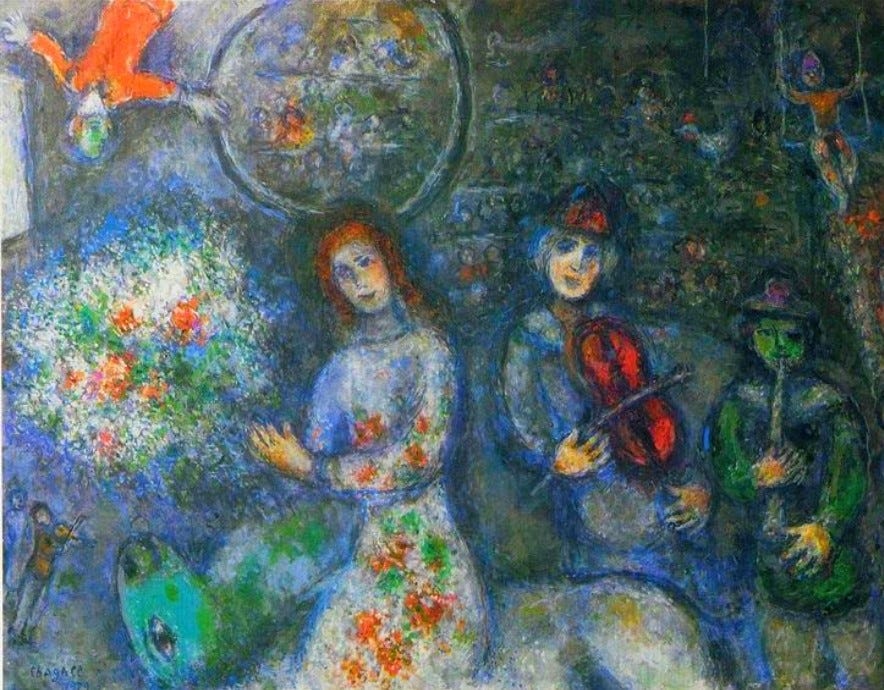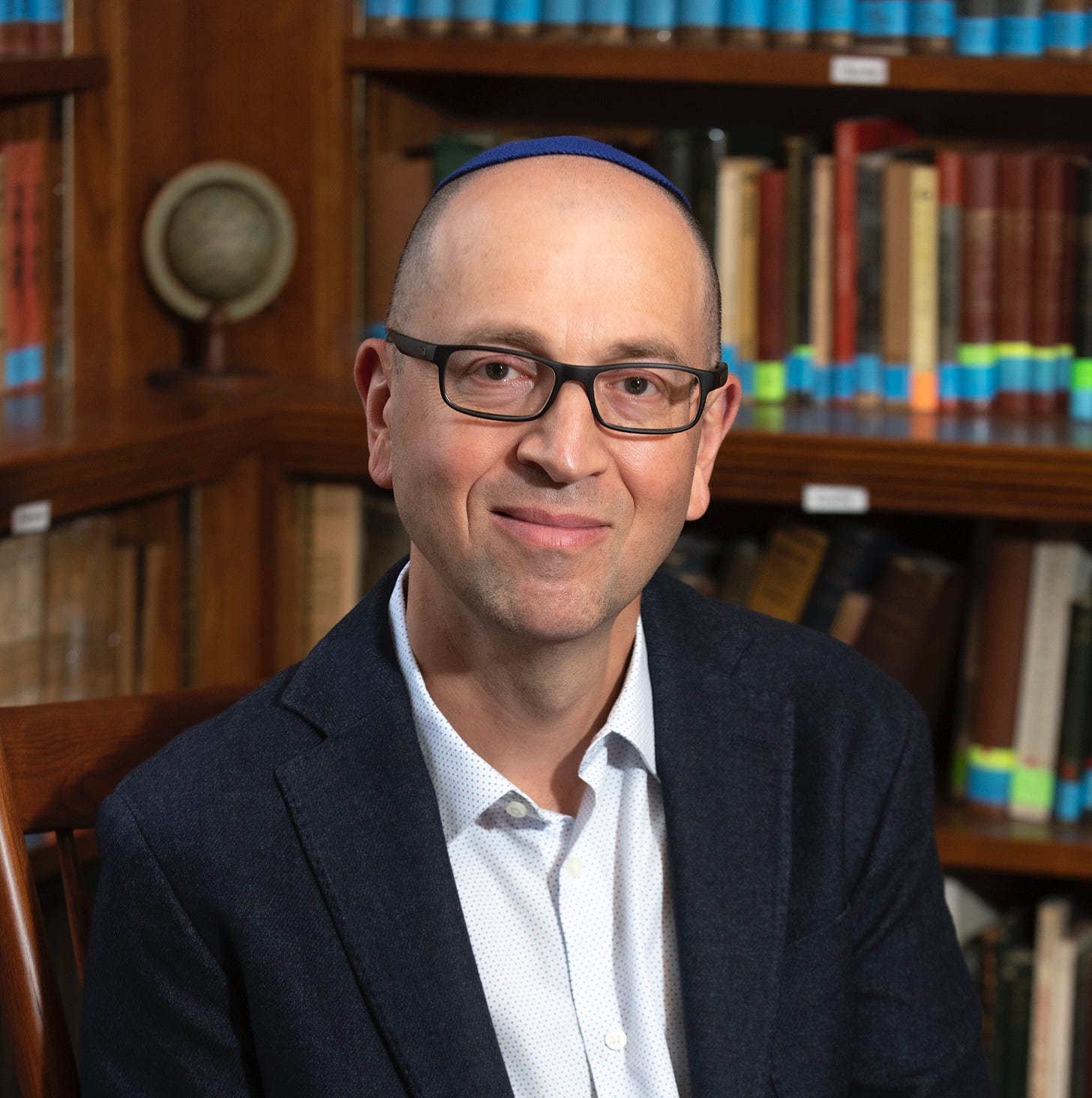Before the incadescent Rachel Neve-Midbar became the poetry editor of JUDITH, "The Ghost Trio" by Maxim Shrayer arrived as an early poetry submission. From the moment I began reading it, I understood that I was in the presence of an incredibly special offering. I shivered with appreciation as I made my way through the stanzas, and since that first experience of it, I have read it again and again and my admiration has just deepened. Poetry was my first literary love. I think of it as the most rigorous and exacting discipline within the world of letters, and the least appreciated. Poetry is intimidating to many people because they feel it's inaccessible, inscrutable. But art is not an intellectual pursuit. There's a quote I love by James McNeill Whistler: Art happens -- no hovel is safe from it, no prince may depend upon it, the vastest intelligence cannot bring it about. You don't have to interpret or deconstruct or analyze a poem -- any more than you would a piece of music -- to experience it. You don't have to find something smart to say about it. You can just read it and let yourself feel it. I hope "The Ghost Trio" feels to you the way it felt to me -- layered, poignant, glinting, sensual, beautifully human.
The Ghost Trio A Jewish organist is playing in a Black church from the Russian of David Shrayer-Petrov 1. Allegro Where, where is the ghost? Whose is the ghostly presence? What’s hidden and what’s lost? The time has come for penance. But there’s no guilty party, only a shimmering appearance. All three musicians strive for clarity of sound, for crisp and lucid phrasing— but chamber music isn’t charity. And so they go on rehearsing, Sunday after Sunday, the date of their performance nearing. Memorial Day already. Pollinate and suffer. Boston suburbs choke. Asthmatic coughing. Concentrate on squiggly notes, music’s secret joke. And then the ghost will finally betray its pallid face, its dagger and its cloak. So many things we hesitate to say come out when musicians play. 2. Largo The violinist dons his Sunday garments, He looks so dapper in the charcoal linen suit and periwinkle shirt—his husband’s present. He takes a sip of pure water. Claims his seat beside the piano, in a square of dusty light. He wipes his brow, foreswearing the heat, rosins his bow, myopically smiling at the cellist. He dreams of taking a lukewarm lavender bath at his apartment in the South End. The list of fortunes goes on—the violinist’s lucky path. His surgeon husband. Summers on the Vineyard. A named chair at Longy. Freedom from all the wrath, resentment, anger. Only practiced love and gratitude for what his parents, doctors who had met at Brown, instilled in their kids: a sense of pride and also a shrewd refusal to let their bodies become the battleground of history—which doesn’t mean the violinist was taught to unremember kinsfolk in Montgomery and Richmond. The violinist sighs and gives the cellist a thoughtful nod as if to say: the pianist's always late. But we, we’re on time. He wants to compliment the cellist on her luscious red hair arranged in a French braid, but such pantomime of gender could be misconstrued. He holds the note, observing quietly the cellist’s dress, the color of lime, her swiveling silver earrings, her ancient aquiline nose. What does he know about her, the violinist wonders. They have been playing for two years. Yes, those bottomless blue eyes. What’s buried in them? Others on the Boston music circuit told him she cannot offend. Her husband is some sort of Jewish poet. Figures he must be a professor. That’s how American artists mend their budgets. The violinist strains to remember other facts: the cellist’s teenage daughters play varsity tennis. No end to the suburban tedium he’s been spared. The ornate face of the clock grins at the violinist as he fidgets, recollecting that a swastika was recently painted on the cellist’s fence. The pianist finally arrives. She’s twenty minutes late. Sing- song voice. Apologies. Caleb was running a fever. She left her cell phone on the counter and had no way of getting in touch. She’s really sorry. In her wavy tie-dyed skirt she looks a bit jejune, the violinist observes. She must be strapped for cash, the cellist thinks, yet she has the spirit to play despite her personal mishaps. The violinist and the cellist both know the pianist is a mess. A divorcée. Three children. Debts. A maze of private lessons. Living in her family’s nest, an old New England farmhouse, where her retired parents obsess about their ancestors’ Mayflower pedigree and socialize with other Yankees from a museum of the past. They start to play. Allegro laced with doubt, tinged with glee. They’re finally all together. Are they, though, are they? The score commands performing it vivace e con bri- o pianist, please don’t overthink the music, just play as written, the violinist whispers while the cellist notes to herself that no matter what, she mustn’t hold sway over the trio lest the ghost suddenly decide to come out. The largo starts. All three musicians know that the ghost is somewhere nearby. Which ghost, though? And which route will it take to break the silence? Whose misery does it host? The ghost of racism, con vibrato, where’s your entrance? The ghost of Jew-hate, come. Next the ghost who is the most camouflaged: white privilege. Whose past does it conceal? Hushed tones of gentility. Whose pain do they reveal? 3. Presto Their last rehearsal on the first Sunday in June. They race though the allegro. Arpeggios of vengeance still hovering like storm clouds. A haunting tune across the sooty sky over the suburbs. Innocence is lost. They get through the allegro on pins and chords. But at the largo things fall apart. Now the sentence. What privilege? Where? the piano plaintively accords. What racism? You don’t know? the violin tremulates. What Jew-hatred? Stop pretending! the cello soars. Please. You’re both made of whiteness, sings the violin. White privilege, white bread, white lies, intones the pianist. Compare pain? I can’t, the cellist rings. My father was in Buchenwald. The black violinist halts and rests the violin on his knees. The Jewish cellist awkwardly gets up and walks away in tears. Only the pianist, only the white pianist pounds the keys. The music rips the skein of being. The ghost is proudly silent. A triumph of difference. Discordant and defiant.
✡️
Maxim D. Shrayer, bilingual author, scholar, and translator, was born in Moscow in 1967 to a Jewish-Russian family with Ukrainian and Lithuanian roots and spent over eight years as a refusenik. He and his parents, the writer David Shrayer-Petrov and the translator Emilia Shrayer, left the USSR and immigrated to the United States in 1987. Shrayer is a professor at Boston College, where he cofounded the Jewish Studies Program. He has has authored and edited more than twenty-five books of nonfiction, criticism, fiction, poetry, and translations, among them the anthology Voices of Jewish-Russian Literature. His poetry collections include four Russian-language volumes, most Stikhiiz aipada (Poems from the iPad, Tel Aviv, 2022), and two English-language volumes, Of Politics and Pandemics (Boston, 2020) and Kinship (Georgetown, KY, 2024). Among Shrayer’s other books are the literary memoirs Waiting for America, Leaving Russia, and Immigrant Baggage and the collections Yom Kippur in Amsterdam and A Russian Immigrant: Three Novellas. He is the recipient of a number of awards and fellowships, including a 2007 National Jewish Book Award and a 2012 Guggenheim Fellowship. Shrayer’s publications have been translated into thirteen languages, most recently Nabokov e o Judaísmo, published in Brazil in 2023, and Immigrato russo, published in Italy in 2024. He lives in Massachusetts with his wife, Dr. Karen E. Lasser, their daughters, Mira Isabella and Tatiana Rebecca, and their silver Jewdle, Stella.
✡️
What are five tiny delights that lift your spirits and make you happy?
The experience of morning coffee with my wife;
The arrival of my daughters’ text messages;
The sensation of a big fish fighting on the other end of my fishing line;
The birth of a poem;
The overnight growth spurt of my cucumbers.
What are five tiny JEWISH delights that lift your spirits and make you happy?
Being with my wife and our daughters on Shabbos;
Standing on Bograshov beach at sundown;
Reading my father’s Jewish poetry;
Seeing my mother’s all-encompassing smile;
Eyeing the wondrous shapes of Hebrew cursive (ktav yad).





